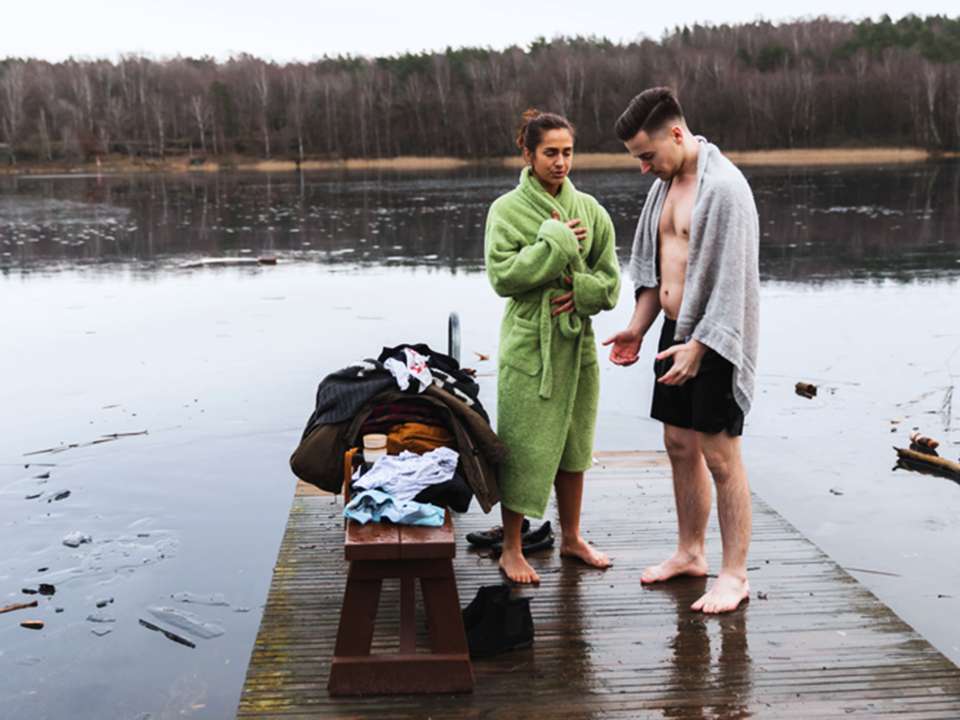
The Seattle freeze is hard enough, but when the temperatures fall and it gets dark before 5 p.m., you might start to really feel the negative effects of loneliness.
Whether you’re not a fan of braving the cold, wet weather, or you find yourself fighting the seasonal blues, if it feels harder to socialize (or want to socialize) when winter hits, know that’s completely normal — and common.
Why do I feel lonelier in the winter?
Randall Espinoza, MD, MPH, the medical director of the Garvey Institute Center for Neuromodulation at UW Medicine, says that feelings of loneliness can increase during the winter months for a variety of reasons.
“There’s less daylight, and temperatures are cooler, so we spend more time indoors away from others and venture out less often,” Espinoza says.
In addition to the cooler temperatures potentially discouraging you from venturing out of your warm bed and into your local trivia night, biological factors can also increase feelings of loneliness.
“Our body temperature may impact our need to reach out and connect with others,” Espinoza says. “Less daylight impacts our sense of well-being, so we may feel or be less social and less motivated to engage with others.”
In contrast, Espinoza says that feeling warmth on our skin sends a signal to our brain, producing oxytocin, a hormone associated with connection. But warmth doesn’t always have to come from the sun; being in a room with people you love or the sensation of physical touch can also elicit this feeling.
Plus, not engaging with your friendships or community and feeling lonely for too long can have adverse effects on your health, with some studies suggesting that prolonged isolation is worse than smoking 15 cigarettes a day and is associated with higher rates of diagnosable mental illness.
So, that warm summer sun can actually convince you to be more social and tell your body that you want connection. On the flip side, less sun and cold skin may create the perfect poison for loneliness: Luckily, the antidote is simple.
Connect with your community — you’ll feel better
As hard as it is to brave the late afternoon darkness, meeting up with friends or attending community events is a great way to combat the feelings of winter loneliness. Espinoza says that intentionally prioritizing being social can be a mood booster.
Here are some ways to do that:
Find a local group
“There are likely many local opportunities that could increase the chance of connections,” Espinoza says. “These include walking groups, social clubs, volunteer organizations and other civic or religious gatherings.”
If you already go on runs, try finding a running group. Love binge reading book after book? Look for a book club. Have a soft spot for animals? Volunteer with an animal shelter. You often don’t have to go far to find a group of people who share the same interests as you.
See if a local business has regular events
Need other ideas? Local community centers or businesses often have karaoke, trivia or bingo nights, craft days, book clubs and sports clubs. So take a look at the websites and social media feeds of your local bars, cafes, bookstores, and rec centers and see what’s in your area.
And don’t worry, you don’t need to have something on your schedule for every day of the week — that could be exhausting even during the warmest months. However, meeting consistently with one or two groups a week can increase your chances of finding in-person or online connections throughout the rest of the week.
Include a friend in an activity you’re already doing
If you want to socialize in person but have little to no energy, remember: You don’t have to go all out every time. If there’s something you already like to do regularly, like an afternoon dog walk or a Sunday trip to the grocery store, or a morning yoga class, try to invite your friends into the routine.
“Look for groups that focus on mutual interests,” Espinoza says. “Do something you love while meeting others. Cultivate an attitude of gratitude for what you have and what you love.”
Make a regular date with a friend (even if it’s not in person)
Yes — connecting with someone virtually is still a good way to tackle those feelings of loneliness. Espinoza says that while the benefits of in-person meetings are clear, the COVID-19 pandemic showed the benefits and importance of online communication and networking.
“Meeting online consistently is key,” Espinoza says. “People can plan around and look forward to these chats.”
Ready to be social, but your friends aren’t?
It happens. For the days (or weeks) when you feel up to a low-key hangout but you have a friend who struggles to engage or has low energy, here are ways to support them:
- Have regular check-ins with your friend, even if it’s just a quick text to say hello
- Invite them without pressure — this could sound like, “Hey! I’m planning to go to a book reading tonight; if you’re feeling up to coming, I’d love to see you there, and if not, I’ll send you the highlights”
- Be a good listener
- Encourage self-care
- Express genuine concern
- Remind them of their value, place and importance in your life or that of their loved ones
Above all, take care of yourself
At the end of the day, if you’re not feeling up to doing something, that’s okay. If you make plans and later decide that you would rather stay in and read a book, it’s OK to cancel plans, too.
“Don’t compare yourself to others, go too fast or do something you don’t enjoy,” says Espinoza.
And remember, the winter blues are temporary — before you know it, you’ll be basking with your friends in that incomparable, warm Seattle sunlight once more.

 Healthy ideas for your inbox
Healthy ideas for your inbox





